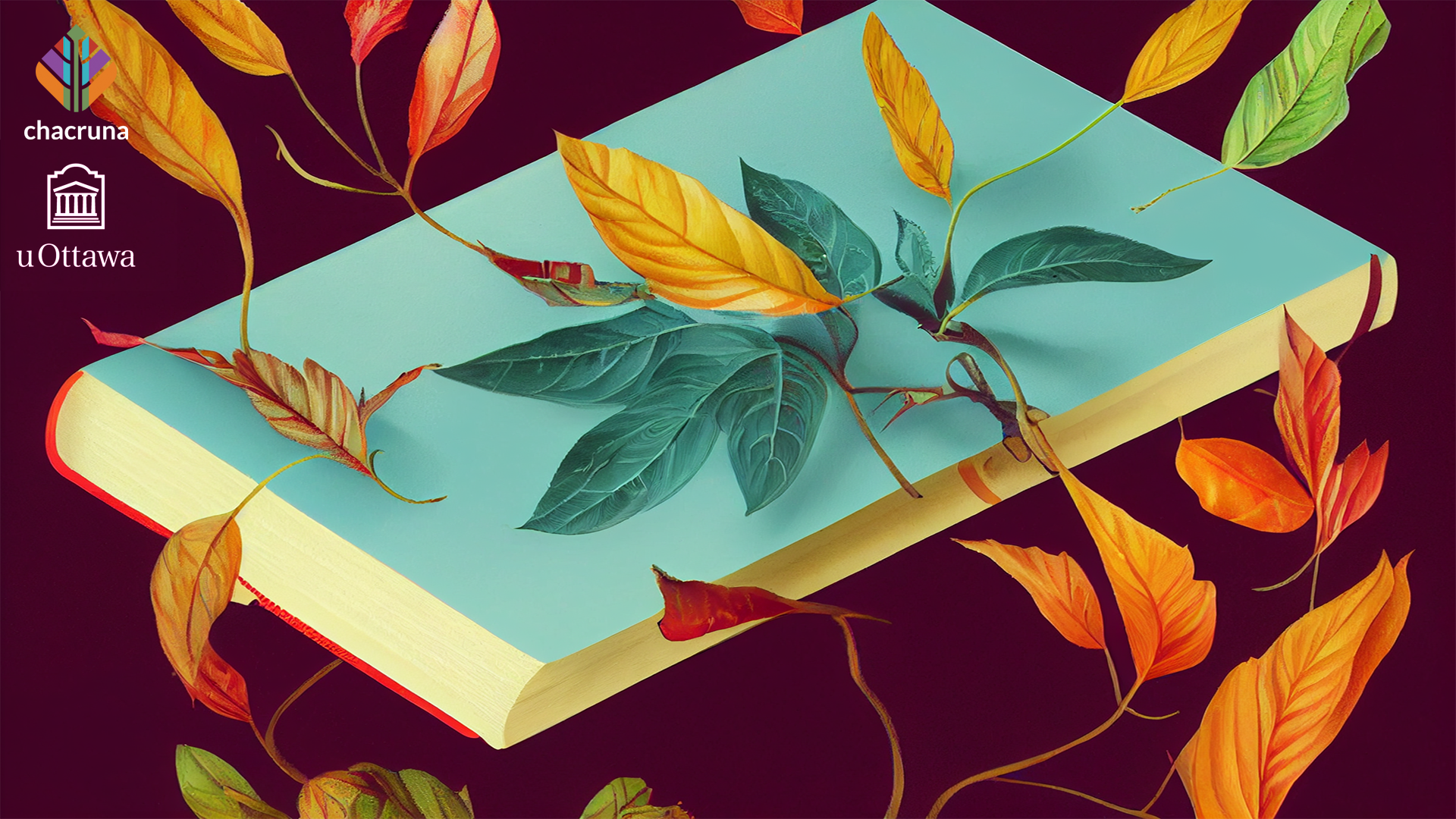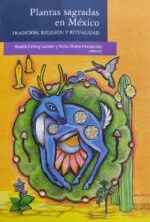- Marketing Internship (OPEN) - June 12, 2025
- Press Release – Chacruna Receives $150,000 Grant from Kindred Trust - June 10, 2025
- Events Production Internship (OPEN) - June 10, 2025
Chacruna Institute for Psychedelic Plant Medicines, in partnership with the University of Ottawa, School of Psychology, is offering a spring course, Diversity, Culture and Social Justice in Psychedelics, part of its Psychedelic Justice Curriculum. Over nine sessions beginning February 6, participants will gain a deep understanding of historical context, contemporary topics, and future opportunities within the psychedelic world. Registration is open now.
The first of its kind in the psychedelic field, the course is interdisciplinary, experiential, personal, and intellectual. Classes will introduce students to critical topics in cultural, historical, scientific, and socioeconomic contexts that have shaped – and continue to influence – the psychedelic renaissance. The course will have a special focus on providing foundational knowledge in psychedelics and justice, diversity, equity and inclusion (JEDI). Students will explore implicit bias, queer aspects, intersectionality, cultural humility, social identity, healing the racial divide, uses of Indigenous plant medicines and challenges around the mainstreaming and globalization of psychedelics.
Each class is taught by international experts in the field, whose perspectives shed light on how psychedelics influence and are influenced by social justice, privilege, and diversity. Faculty include Dr. Bia Labate, Dr. Monnica Williams, Dr. Sonya Faber, Dr. Joseph McCowen, Dr. Clancy Cavnar, Dr. Alex Belser, Dr. Darron Smith and Lígia Platero.
“Many people are not aware of both the potential pitfalls of psychedelics, and the fact that this movement did not start in the counterculture or in the labs of white male scientists. It’s important to have an understanding of the field to move forward in mindful ways.”
Bia Labate, PhD
According to Chacruna’s Executive Director, Bia Labate, PhD, the program presents a unique opportunity for students of psychedelic science and culture to gain a deep understanding of historical context, contemporary topics, and future opportunities within the psychedelic world. “Many people are not aware of both the potential pitfalls of psychedelics, and the fact that this movement did not start in the counterculture or in the labs of white male scientists,” she shares. “It’s important to have an understanding of the field to move forward in mindful ways.”
These classes are “essential as we move into the new psychedelic renaissance,” says Dr. NiCole Buchanan, Ph.D., who is part of Chacruna’s Board of Directors: “This course will help all of us improve our competence working with diverse communities and will expand knowledge of the challenges that might arise when working with those from different backgrounds,” she adds.
Clancy Cavnar, PsyD, will dive into the diverse history of the field in her class, ”Queer Aspects of Psychedelic Experience.” “The study of queer people’s past histories with psychedelics will help inform clinicians of the sensitivity of the subject for this population, especially in regard to ‘conversion therapy,’” she says.
“The joy of the exploration of alternate states of reality has long been a secret of outsiders in our culture, queer people being among the most creative and prolific users of these substances.”
Clancy Cavnar, PsyD
“The joy of the exploration of alternate states of reality has long been a secret of outsiders in our culture, queer people being among the most creative and prolific users of these substances,” she continues. “The culture that arose around this and its influence on popular culture is fascinating.”
Courses are open to students from all professional backgrounds, including those who want to pursue deeper knowledge of psychedelic culture and science. Since its inception, Chacruna Institute has been an inspiration and reference for the many institutions that have begun offering psychedelic trainings and studies, including Stanford University, Naropa University, CIIS, Vital, Psychiatry Institute, Psychedelic Support, Synthesis Institute, UC Berkeley, InnerTreck, Synaptic Institute, University of Ottawa, and many others. Chacruna students and team members have worked as professors, advisors, and consultants in these and other organizations across the world. Through this course, Chacruna will “continue to promote and nourish the creation of a new generation of psychedelic therapists and practitioners, who are more needed than ever as we move forward with this psychedelic renaissance,” says Labate.
Get more information and register here. CE credits are available, and students have an option to receive a Certificate of Completion from Chacruna. Classes start February 6.

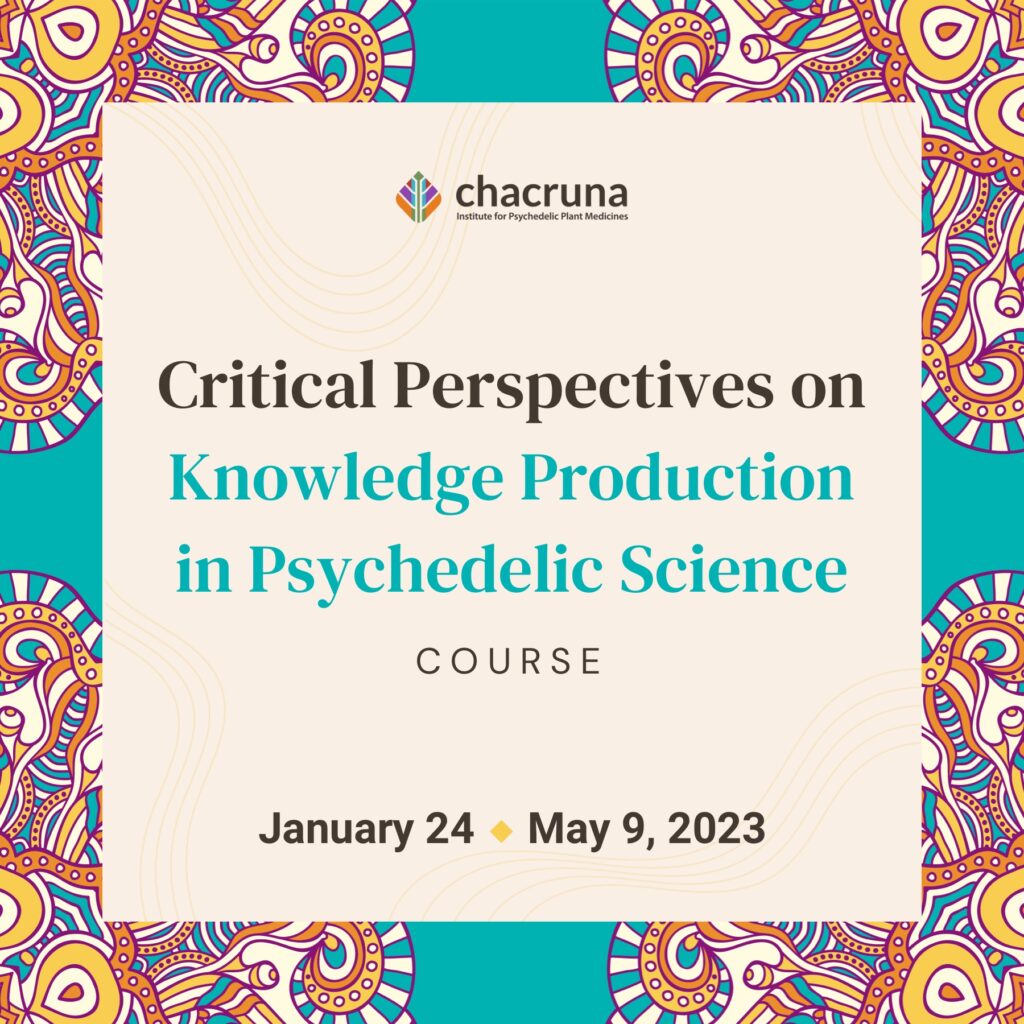
In the sixteen-week course Critical Perspectives on Knowledge Production in Psychedelic Science (January 24 – May 9, 2023), participants will be invited to consider and think critically about a variety of methodological and ethical issues related to psychedelic science, including the role of the humanities, religious biases, and Indigenous knowledge. Faculty include Dr. Erika Dyck, Canada Research Chair in the History of Medicine; Dr. Sidarta Tollendal Gomes Ribeiro, deputy director of the Brain Institute at Universidade Federal do Rio Grande do Norte (UFRN); and Dr. Joan Scuro, anthropologist and professor at the Social Anthropology Department, Universidad de la República, in Uruguay.
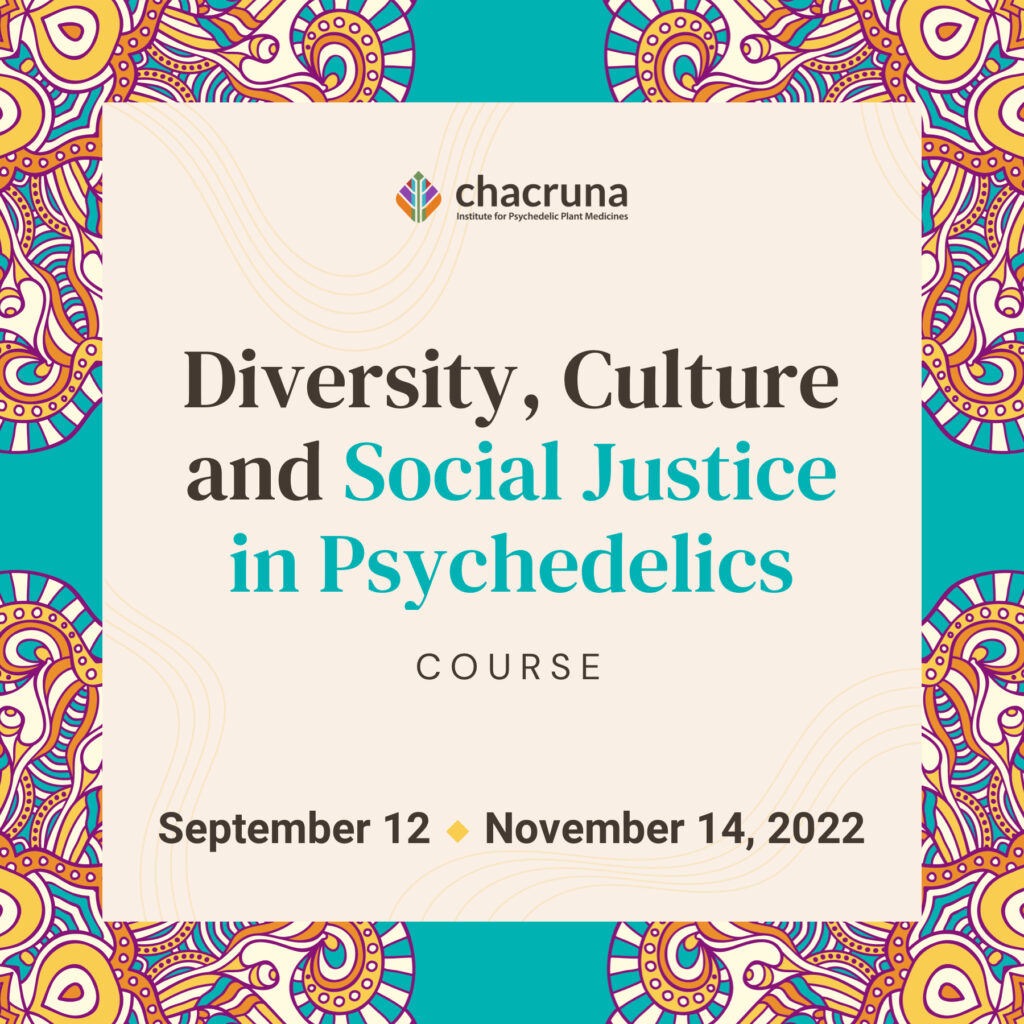
The nine-week course Diversity, Culture and Social Justice in Psychedelics (February 6th – April 10th, 2023), will examine how psychedelics and the psychedelic field are influenced by structural bias, power and privilege, social justice, queerness, gender identity, Indigenous practices and more. Faculty include, among others, Dr. Monnica T. Williams, Canada Research Chair in Mental Health Disparities; Dr. Darron T. Smith, Professor of Sociology at the University of Memphis; and Dr. Bia Labate, Executive Director, Chacruna Institute for Psychedelic Plant Medicines.
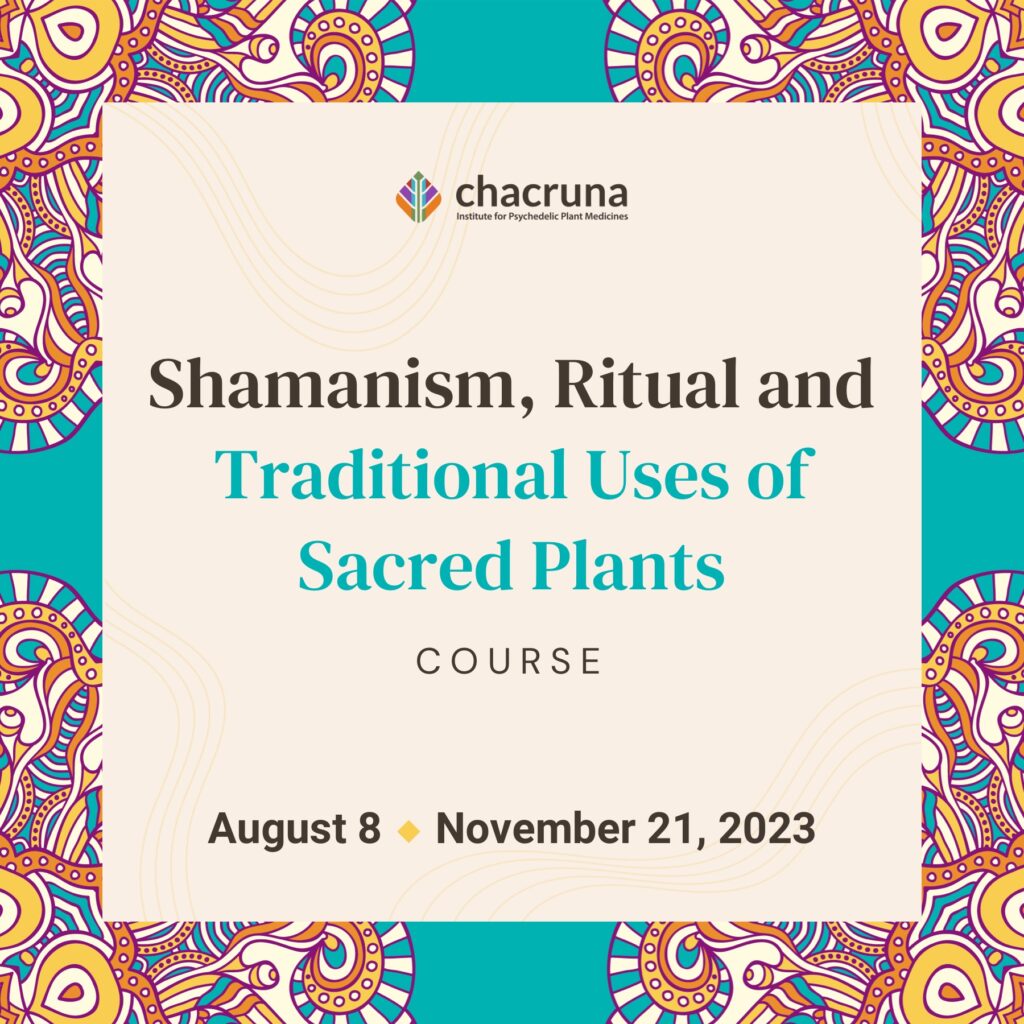
The 16-week Roots of Psychedelic Therapy: Shamanism, Ritual and Traditional Uses of Sacred Plants, will take place August 8th – November 21st, 2023. Lectures, taught by an international team featuring members of Chacruna Institute and its affiliates, will explore topics including psychedelic plants and conservation, sacred plants and shamanism, Mazatec uses of psilocybin, peyote and the Native American Church, traditional and contemporary uses of iboga and ibogaine, the effects of psychedelic tourism, ethics in plant medicine circles and much more.
Why Chacruna?
Chacruna offers a robust, accessible curriculum of multidisciplinary courses, the caliber of which are typically only available through research universities. Chacruna’s commitment to equity and accessibility means that these classes have consistently been affordable and available to anyone curious to learn more about the complex, rich world of psychedelic studies. With this course, Chacruna continues its legacy as a leader in psychedelic science.
Students enrolled in Chacruna courses can expect a graduate program-caliber of excellence, available to any enrollee in a format that will fit into busy schedules. They may also complete additional work – including a final paper that could be published on the Chacruna website – to receive a certificate of course completion.
Critical Perspectives on Knowledge Production in Psychedelic Science is designed for anyone interested in the psychedelic renaissance. Students who are health professionals are also eligible for CE credits. Participants meet weekly on Tuesdays from January 24 through May 9, from 10-12 p.m. PT/1-3 p.m. ET. The course fee is $1,100 US. Scholarships are available on a limited basis. See the full course description and apply here.
About Chacruna Institute
The Chacruna Institute for Psychedelic Plant Medicines, is a 501(c)(3) non-profit organization co-founded by Brazilian anthropologist Dr. Bia Labate and American psychologist Dr. Clancy Cavnar, based in Northern California and with strong ties to Brazil and Mexico. We promote reciprocity in the psychedelic community, and support the protection of sacred plants and cultural traditions. We advance psychedelic justice through curating critical conversations and uplifting the voices of women, queer people, Indigenous peoples, people of color, and the Global South in the field of psychedelic science.
Contact Information
Lorien Chavez
Chacruna Institute
[email protected]
415-390-6157
Art by Trey Brasher.
Take a minute to browse our stock:
Did you enjoy reading this article?
Please support Chacruna's work by donating to us. We are an independent organization and we offer free education and advocacy for psychedelic plant medicines. We are a team of dedicated volunteers!
Can you help Chacruna advance cultural understanding around these substances?


